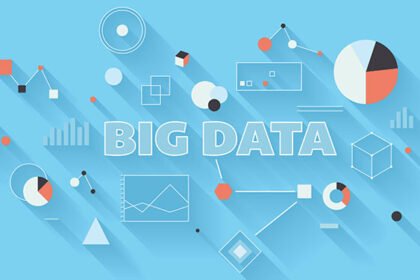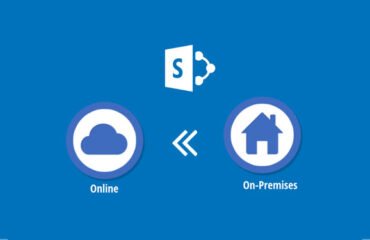
In today’s intensely competitive environment, data access and use in any industry are critical for understanding consumers and making sound business decisions. Customers want a consistent shopping experience across all platforms, from the initial search to the completion of a purchase. From an organizational standpoint, it is important to link all of the dots to achieve consumer insights, such as product demand, retail habits, shopping experience, geographic location, currency, and so on. With the benefit of all of this material, an interesting idea that has piqued the interest of retailers is “Big Data.”
Big Data does not just refer to consumer or commodity data. It refers to all kinds of data from various sources. Customers can now quickly find the right price for their purchase by comparing products online. If they do not have customized service, they are unable to make another order. Retailers that lack perspectives steer their businesses away from the most recent industry trends and retail values.

Retailers will benefit from big data
Although retailers capture consumer data, they are unable to efficiently exploit it. The Big Data revolution has now shifted the shopping trend to one that is more customer-centric. Using data to understand consumer behavior allowed for the implementation of a tailored marketing strategy. Every company wants to engage with their clients, regardless of their venue, and provide customized support, but doing so poses a competitive challenge. As a result, gathering several chunks of data determines the customer’s actions.
According to a Science Daily statistic article by Thorsen, 90 percent of data has been obtained in the last two years. Data from social media, mobile, and local sources have been created in an unstructured format that enterprise solutions and data warehouses cannot handle.
This creates a need for Big Data Analytics tools, which enable companies to exploit available data to drive marketing campaigns, sales, and efficiently operate their businesses. This also provides an opportunity to learn about the customer’s relationship with the company.
Make Use of Big Data in Retail
Historical data provides basic information about consumers but not enough depth. To understand an individual’s behavior in business, granular data is required. Retailers tend to exploit this current movement to change their cultural habit to develop a better understanding of this technology to make technology simpler for consumers so that they have a smoother experience, as mentioned below:
- Fuzzy Logic: This definition applies to evaluating the relationship between various data components. For example, a customer is certain of his purchase necessity but has never been introduced to a variety of options; on the other hand, vendors do not have the same product that the customer desired, but may have anything comparable. This is where Fuzzy Logic comes into play, as marketers have something similar to consumer quest to win their interest. This reasoning means that when all parties compromise on the nearest possible alternative.
- Stock Prediction: Previously, forecasting stock was a straightforward task due to small data elements and limited shopping seasons or occasions. Big Data provides unlimited opportunities to forecast stock ahead of various factors such as seasons, temperature, patterns, and much more. Retailers will now concentrate exclusively on pricing the goods rather than stock research.
- Improved Shopping Concept: Knowing what the majority of shoppers want or why they leave the shopping cart is critical information for retailers. Big Data Analysis is a smart way to grasp consumer buying habits and reinvent the shopping experience. A merchant may use this technology to gain access to a consumer’s interests, geographic positions near their stock location, and to recommend a better price to the customer. If a buyer purchased the items, marketers have won.
- Customer Reward: Through Big Data, marketers can keep track of their returning consumers, who are valuable resources for their company. The business gives loyalty incentives to each regular customer to please them and keep them loyal to the brand. Analytics, which research consumer habits and purchasing patterns, play an important role in loyalty programs. It has evolved into an efficient method of determining CRM strategies.
- Detection and Prevention of Fraud: When a company goes online, detecting fraud becomes a big concern. When more purchases moved online, complex criminal practices proliferated. Analytics collected all unstructured data and analyzed it to detect mismatched patterns early on.
Big Data can fail if…
- Lack of market objectives: Big Data is a popular topic right now, but through widespread adoption, it falls short for some companies. There is a high risk of disappointment when an organization invests in an analytics platform but does not have a clear strategy about how to use the results. The approach would remain ambiguous until the dilemma is identified and how Big Data will be used to help. As a result, it is prudent to prioritize market goals and recognize a dynamic challenge that must be solved.
- Inadequate abilities: If the correct set of minds are not interested in questioning the evidence, Big Data can struggle. Getting the best expertise to grasp a big data definition is challenging, but marketers would work tirelessly to attract the right candidates for their research.
- Inadequate domain expertise: Big data can only be used if the central domain is known. And after recruiting seasoned data analysts, failure happens due to a lack of domain expertise. As a result, it is still a smart idea to employ a data scientist with domain experience.
How does Big Data help the retail industry?
Retailers have been more data-driven, so they can aggregate it to boost their efficiency and satisfy consumer demand. Big Data expands ways to efficiently reach existing consumers and allows the recognition of the most valuable and potential customers. This archive of data drives statistical research, which broadens the potential for change. Big Data is permeating all markets, and an analytics approach will assist in identifying the best knowledge for market results by gaining customer feedback and operating efficiently. Partnering with the right product development firm, such as one that specializes in Big Data & Analytics Applications, is key to turning concepts into functional solutions.




